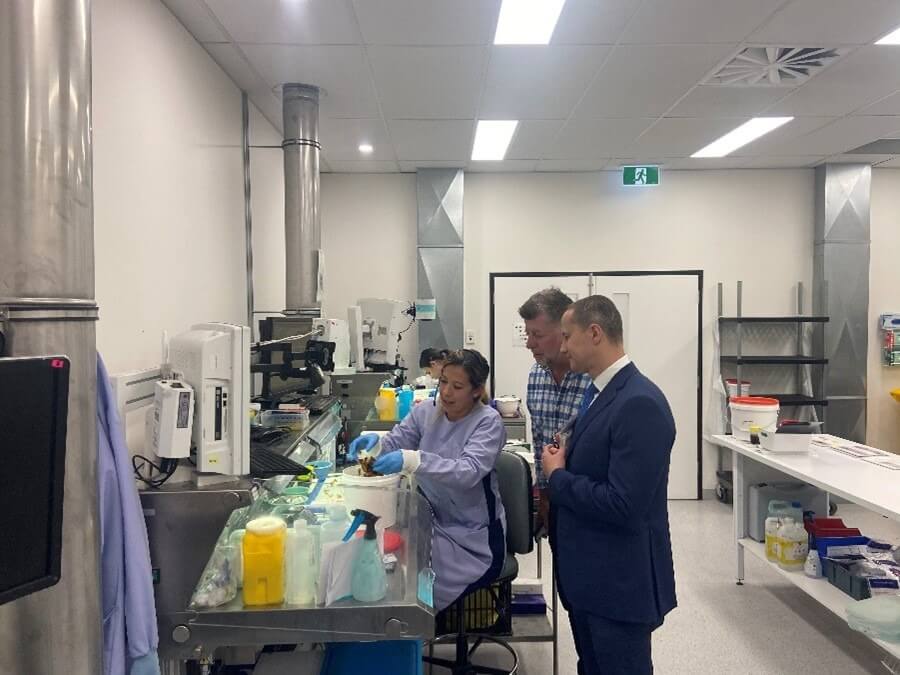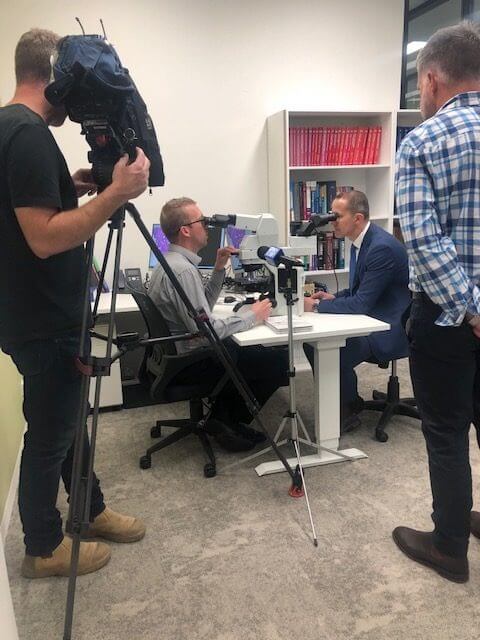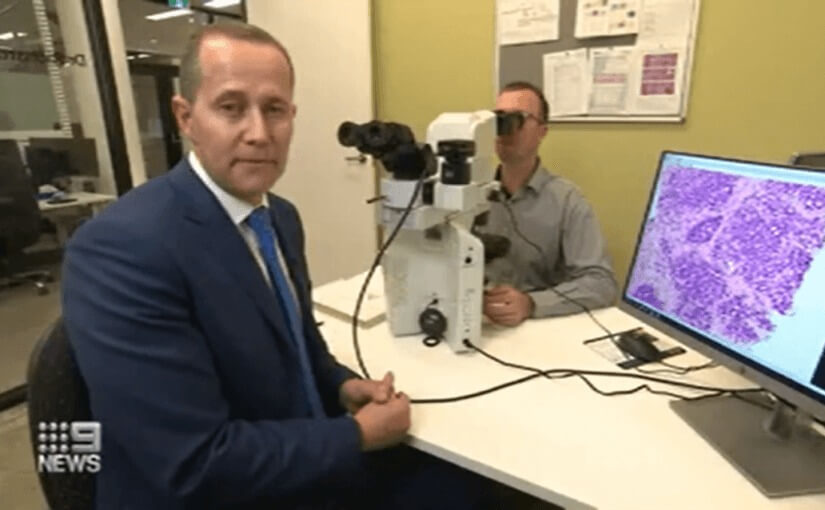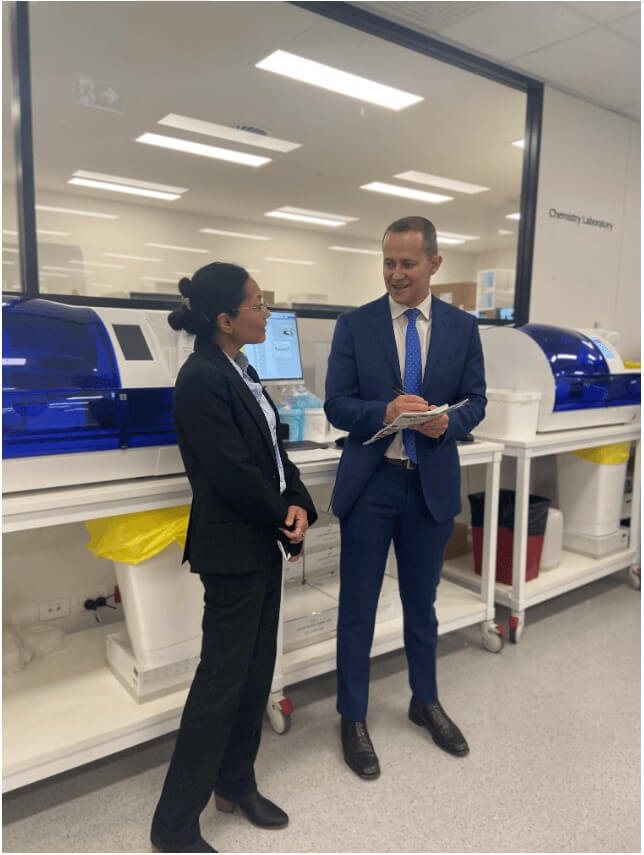Channel Nine news reporter Will McDonald had never been fitter when he was diagnosed with prostate cancer at just 42 years old.
In July 2020, he went to see his doctor with what he thought was a niggling hip injury. Scans were ordered and then pathology tests and after several weeks of investigation, Will was shocked to be diagnosed with prostate cancer.
“I don’t drink or smoke and I exercise like a bit of a maniac! I’d never felt fitter so the diagnosis was a shock, it didn’t make sense to me. My dad had been diagnosed with prostate cancer just 6 months before in his early 70s but otherwise I had no family history,” he said.
“I think there’s a general sense of ‘it won’t happen to me’ amongst men. Unfortunately, I’m proof that it could happen to you. I know some men are scared of the physical examination but they should know that to get checked the first step is a blood test, and you may not even need a physical exam. There’s so much you can’t control with your health, so it’s important to take action on what you can.”
Pathology Awareness Australia invited Will inside the pathology laboratory in Adelaide where his cancer was diagnosed. He was accompanied by Tim Stollznow a prostate cancer survivor and ambassador for the Prostate Cancer Foundation of Australia.
Chemical Pathologist, Dr Devika Thomas explains PSA testing to news reporter Will McDonaldTim was diagnosed with prostate cancer in 2016, aged 50. In contrast to Will’s story, Tim had been getting regular Prostate Specific Antigen (PSA) tests because his father and grandfather had both had prostate cancer, so he knew he was at higher risk and had discussed this with his doctor.

He was diagnosed after a biopsy in 2016 and was fortunate to catch the cancer at an early stage. At first Tim chose to have regular monitoring tests but when his PSA level began to rise he was referred for another biopsy which showed the cancer was progressing. Tim had surgery to remove his prostate in 2017 and says life now is pretty much back to normal;
“You look at life a little differently when you’ve had cancer, it takes a while to come to terms with, you don’t think about it day to day but sometimes you do reflect on it, maybe when you’re walking on the beach,” he said.
Both Will and Tim were impressed and fascinated by what they saw in the pathology laboratory and Will was also able to see his own biopsy slides under the microscope.

Tim believes education in the community is key to fighting prostate cancer;
“We’ve got a lot of work to do as a society in creating awareness of prostate cancer. I was lucky that I knew my grandad had prostate cancer. There are plenty of instances of men back in the 1970s, 80s and 90s who had prostate cancer but didn’t talk about it. When I first heard of prostate cancer I didn’t know what it was, where the prostate was. I think it’s so important to talk about.”
Professor Jeff Dunn AO, CEO of the Prostate Cancer Foundation of Australia (PCFA) urged Australians to learn more about prostate cancer risk factors, and about the prevalence of the disease.
“Community awareness is key to beating prostate cancer. Many Australians don’t know the risk factors for prostate cancer, such as age and family history. If you have just one direct male relative who has had the disease, your risk doubles,” said Prof Dunn.
PCFA has recently launched their STARGATE data portal where anyone across Australia can search using their postcode for prostate cancer data for their region.
You can see the Channel 9 news coverage of the story here:



